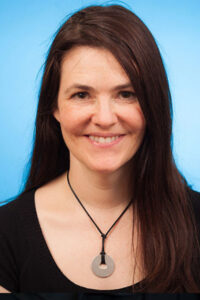
An inquisitive nature has helped propel the life’s work of this year’s speaker for the I. S. Ravdin Lecture in the Basic and Surgical Sciences, and she challenges others to ask “brave and interesting” questions to further surgical science.
Canadian surgeon and clinical epidemiologist Nancy Baxter, MD, PhD, head of the Melbourne School of Population and Global Health, Australia, will present Using Yesterday’s Data Today to Improve Care and Outcomes Tomorrow on Monday, October 5, at 1:00 pm CDT. The lecture will be available for on-demand viewing through the virtual Clinical Congress meeting platform through December 31.
Dr. Baxter, the first woman to give the Ravdin Lecture in 40 years, will explain how to use pre-existing data to address important questions that can have an impact on patient care, the practice and culture of surgery, or both.
She presents an example from her own research evaluating if sleep deprivation among surgeons affects patient outcomes for elective procedures. This project harnessed data from medical billing coding to identify surgeries that took place after a doctor had been on call overnight.
Having data like these and posing questions are not enough to conduct research that has an impact, Dr. Baxter said. A key element is asking bold questions the data can answer.
“It sounds simple, but while it’s relatively straightforward to ask interesting questions or to ask questions answerable by your data, the magic happens when you combine these two elements,” she said.
Surgeons have been doing research using administrative data for some time, and Dr. Baxter said she thinks it’s finally becoming accepted as a valid pursuit for surgical scientists. But before delving into the data, analysis, and conclusions of any researcher, she calls on the medical community to expand who is valued as a successful surgical scientist to avoid missing out on potential discoveries and insights.
As an example, she points to the lineup of past Ravdin lecturers, which is filled predominately with men and only one person of color among them. Dr. Baxter is the second woman to give the lecture since its inception more than half a century ago and the first female surgeon to do so.
“I’m sure many women and many people of color have made the short list, but none of us have made it onto the podium,” Dr. Baxter said. “If that’s how we view contributions of women and people of color, then one wonders what we’ve been missing.”
She asserts that overcoming bias about who is seen as a scientist is critical to ensuring people with ability are able to conduct the science they can do to further the progress of surgical science and science in general.
“By privileging certain people because of their demographics versus because of their talent, what we do is we miss opportunities to learn, to increase our understanding of the world, and to improve care for our patients,” she said.
This lecture has been sponsored by the I.S. Ravdin Surgical Society since 1964 to honor Dr. Ravdin by promoting knowledge in basic sciences with application to surgery.

